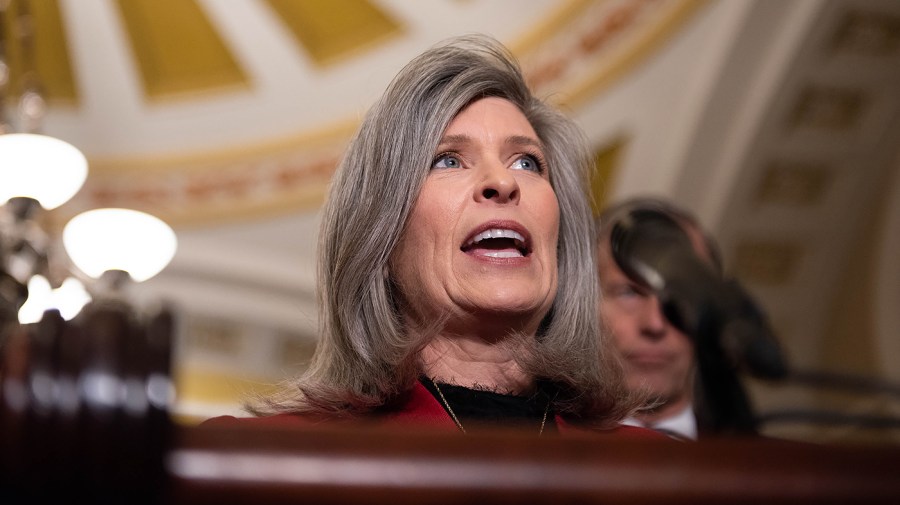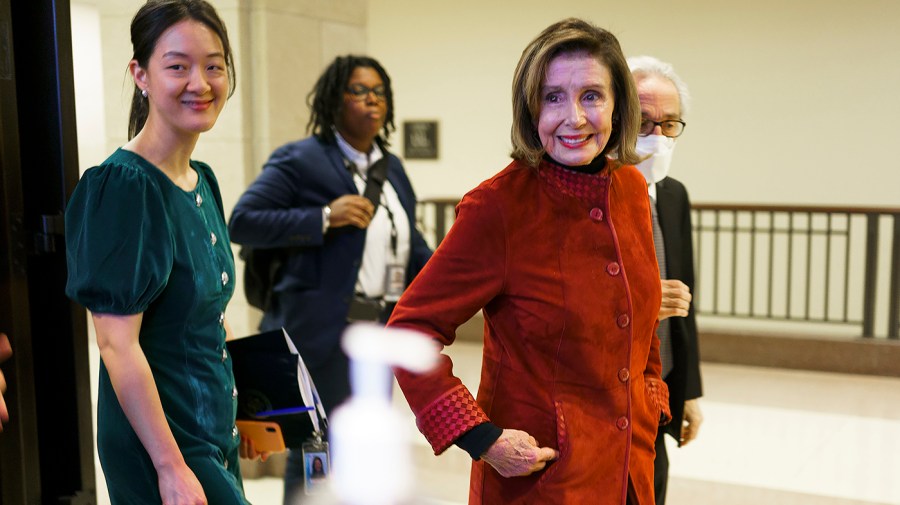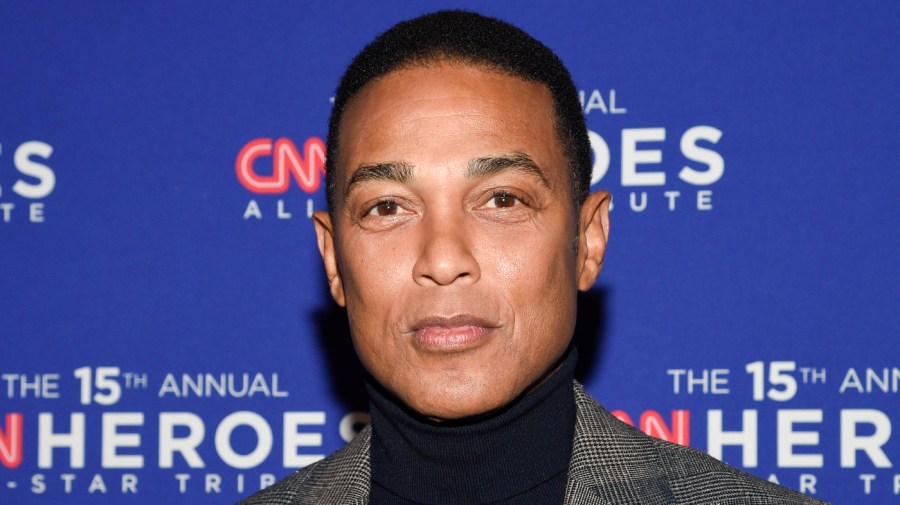2023 is shaping up to be the Year of the 50+ Woman
When Michelle Yeoh made history at the Oscars this month, she offered a clarion call for women of her generation while taking a shot at a certain CNN personality.
“Ladies, do not let anyone ever tell you you are past your prime,” said Yeoh, 60, as she accepted the Academy Award for best actress — becoming the first Asian woman ever to win the prestigious award for her performance in “Everything Everywhere All at Once.”
The remarks were notable given the victories at the Oscars by Yeoh and 64-year-old Jamie Lee Curtis, who took the supporting actress Oscar for the same film.
But they resonated much further than Hollywood, particularly in the context of CNN host Don Lemon’s highly publicized remarks about GOP presidential hopeful Nikki Haley not being in her “prime” at the age of 51.
Lemon, 57, angered his co-workers, infuriated his boss and sparked a national conversation about the ageism women face with his remarkable comments.
“I would just like to let Don know that I have a lot more coming,” Sen. Joni Ernst (R-Iowa), 52, told The Hill, adding, “Don’t let the silver hair fool you.”
“I don’t care if you are 18 or 80 — every woman contributes, whether it’s in her own home, whether it is in a small business, as a small business owner, or, for heaven’s sake, maybe as president of the United States,” Ernst said during an interview for The Hill’s Women’s History Month event Women Out Front last week.
According to a 2021 survey conducted by executive coach Bonnie Marcus and Out-Wit Inc., 80 percent of all women surveyed said they have experienced some form of gender-based ageism. Among women between the ages of 59 and 64, the survey found that number reached 88 percent.

Sen. Joni Ernst (R-Iowa) was one of a number of high-profile women who hit back at Don Lemon’s remark about Nikki Haley not being in her “prime.” (Annabelle Gordon)
Former Speaker Nancy Pelosi (D-Calif.), the first woman to hold the highest office in the House, has also noted the double standard in politics for men and women.
“Age is a relative thing, but I will also say this: Many times women go to Congress after they’ve started their families and the rest, so they have a late start,” said Pelosi during remarks at the University of Chicago’s Institute of Politics earlier this month. “So my running in my 40s was the equivalent of men running in their 30s, really, because — it wasn’t the equivalent — but by the time I got to be a senior on a committee, I would be in my 50s. They’d be in their 40s.
“Don’t come around and ask me about my age because I’m a woman when I’m winning elections, and [Senate Minority Leader] Mitch McConnell [R-Ky.] is losing elections and you never asked him about his age, which is comparable to mine,” she added.
For men, aging seems to be something that is celebrated, with terms like “silver fox” becoming commonplace. Conversely, a quick online search for phrases to describe “older woman” brings up “granny” and “old dame,” among others.
“Look at most television news stations,” said veteran U.S. broadcast journalist Elizabeth Vargas, 60. “You’ll see a man in his sixties paired with a woman in her thirties.”
In 2022, veteran Canadian journalist Lisa LaFlamme’s contract at CTV News was not renewed by its parent company Bell Media. Reports later surfaced that the head of CTV News had raised questions about LaFlamme’s hair, which had gone gray during the pandemic.
“As a society, we put a lot of pressure on women to look a certain way, to act a certain way, to dress a certain way and particularly in television news, men are allowed to go grey and wrinkly and they have gravitas, and women are often showed the exit,” Vargas said.
Vargas, who is gearing up for the Monday premiere of her NewsNation show, “Elizabeth Vargas Reports,” on Monday called for “a massive cultural shift” in which women’s life and professional experiences are honored. NewsNation and The Hill are both owned by Nexstar Media Group Inc.
“I really wish as a society that we would value and honor women’s experience and women’s aging the same way we do as men, because right now, it is definitely an uneven and unfair playing field,” Vargas said.

Former Speaker Nancy Pelosi (D-Calif.), has talked about the difference in how she and Senate Minority Leader Mitch McConnell are spoken about, drawing attention to the double standard in politics for women. (Greg Nash)
Experts say much of the ageism older women face can be traced back to the physiological changes women go through as they age, known as perimenopause and menopause.
Lemon initially doubled down on his comments about Haley, saying that “if you Google ‘when is a woman in her prime,’ it’ll say 20s, 30s and 40s.” And while he faced even more backlash after that remark, his argument is not completely out of the ordinary.
“It’s the male point of view, and it comes from a sexual point of view,” said Lesley Jane Seymour, founder of the CoveyClub, an online community for women older than 40. “What they mean is not their prime in business, what they mean is sexual prime.”
According to an Ipsos survey released last year, 53 percent of U.S. adults — men and women — said they were comfortable talking about menopause, while 23 percent said they were not comfortable broaching the subject. The margin widens considerably when broken down by gender. Only 33 percent of U.S. men said they were comfortable talking about menopause, compared to 72 percent of U.S. women who said they were comfortable addressing the topic.
“This is something that happens. This is super normal,” said Gwendolyn Floyd, CEO of Wile, a health and wellness company geared toward perimenopausal and menopausal women. “Why does everyone know we get our periods, but then we can’t talk about how this other hormonal shift happens to every single woman?”
Floyd noted a deity archetype in neopaganism known as the Triple Goddess, which is made up of a woman’s three stages of life: maiden, mother and crone. The maiden represents youth and innocence, while the mother quite obviously represents maternity. The crone has a less flattering meaning. The Cambridge English dictionary describes a crone as “an unpleasant or ugly old woman.”
But Floyd and scores of women are working to erase that narrative of “the crone,” arguing that this third stage of a woman’s life is actually her prime.
“It’s when we know ourselves. We have a career under our belts or a family,” she said. “It’s a time in our lives where we are best primed to have maximum impact.”
Rep. Ashley Hinson (R-Iowa) noted during The Hill’s Women’s History Month event that she believes she is in her prime at 39 years old, citing her status as a working mother.
“When I hear people like Don Lemon saying that women are not in their prime, I think I am in my prime because I am a working mom and a member of Congress,” Hinson said. “It’s not easy, but am I proud of it and the example it sets for my kids? Heck yes.”

Despite the backlash around Don Lemon’s comment about Nikki Haley, the point he was making about women’s abilities as they age is not uncommon. (Evan Agostini/Invision/AP)
However, many say corporate America and the media have yet to adopt the message that women can reach their prime when they are older than 40 or 50.
Seymour was previously the editor-in-chief of More, a women’s lifestyle magazine that was geared toward women over 40 until it that ceased publication in 2016. She said the magazine, which boasted more than 1 million readers, ended “because no one could convince advertisers that women 40-plus had money to spend — and they did.”
“In fashion and beauty, there is such a fear of aging,” Seymour said. “The worst thing you can be is old.”
“I had a very important designer sit me down when I took over More,” she continued, recounting the conversation, which took place during the Great Recession in 2008. “He said, ‘You know Lesley, the only thing keeping my stores open are women 40-plus, but I can’t advertise to them because then the 20-year-olds won’t come in.”
Groups working to recruit women to run for office from both major parties are pushing back against the narrative that pits older and younger women against one other.
“For us, when you talk about ageism, that is really an effort to ignore competency, to ignore experience, to ignore knowledge,” said Sara Spain, national press secretary at the Democratic group EMILY’s List.
“We focus on electing Democratic pro-choice women to office. So as we think about the tolls that they face to break down barriers, that’s why we prioritize supporting our endorsed candidates at every step of their political journey,” she said.
Annie Dickerson, the founder and chairwoman of Winning for Women, a group that works to elect Republican women, said there is an opportunity for older and younger women to learn from each other in the political sphere.
“I think we both need one another,” Dickerson said. “Older people need youth and their bubbliness and energy and their striving and their constant vision, but the young people really, seriously need somebody who is wise.”
“In order for somebody to be a CEO of, let’s say, a Fortune 500 company or the CEO of your district, or the CEO of the United States in the form of the presidency, don’t we want somebody that’s a little bit wise?” she said.
But younger women say they are also facing ageism in the workplace.
“It’s a bit of a double-edged sword, really. As a society, we have been trained to go after the shiny new thing,” wrote Danielle Weisberg and Carly Zakin, millennial women and co-founders of theSkimm, a media company geared toward women, in an email with The Hill.
“Then when we have it, we quickly change the narrative to show the lack of experience. While they are being offered these opportunities, once they get them, Gen Z and younger millennials are left feeling like they aren’t taken seriously due to their age and experience,” they continued.
Women across the age spectrum maintain that some men in workplace seek to divide them in the workplace.
“That is a caricature that has been promoted to try and split women apart from each other. The problem is not the older women, the problem is the men,” said Kathy Spillar, executive director of the Feminist Majority Foundation and executive editor of Ms., a feminist magazine founded by Gloria Steinem.
Weisberg and Zakin said the caricature is already losing its influence with louder calls for a greater presence of women in the workplace.
“As we start to unpack the way women were pitted against each other, women no longer feel like they need to compete for these roles and rather, come together to uplift each other,” they stated in their email to The Hill. “From when we were younger to now, we are already seeing a change in how women are supporting each other and recognizing that advancement for one means opportunities for many others.”
Copyright 2023 Nexstar Media Inc. All rights reserved. This material may not be published, broadcast, rewritten, or redistributed. Regular the hill posts







